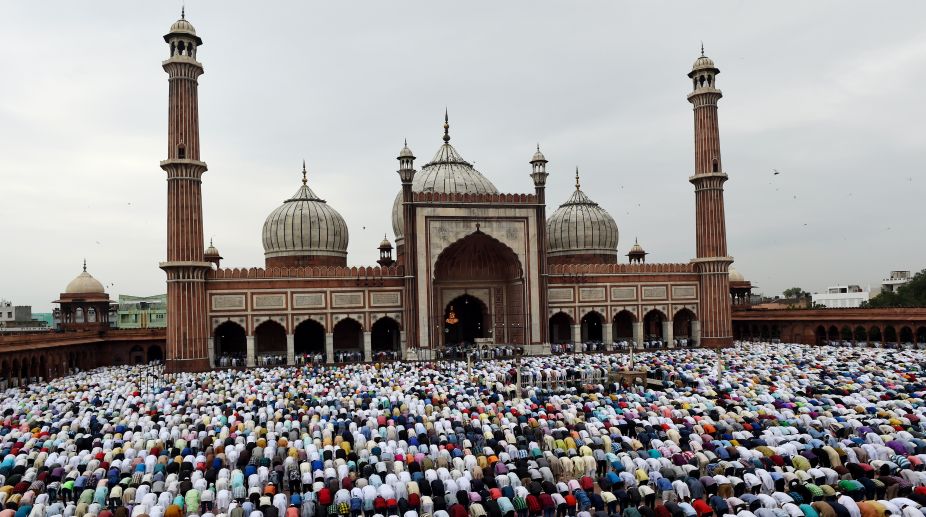The labyrinth of by-lanes in the walled city around the 17th century Jama Masjid reverberated with the sound of prayers on the occasion of Eid-ul-Azha, being celebrated across the country on Saturday.
The devout Muslims of all ages, dressed in their traditional fineries, usually crisp pathani suits of different hues and matching skull caps, began the festivities by offering prayers in the morning and hugging each other. While prayers took place in mosques, many women offered namaz at home.
Advertisement
The prayers are followed by the customary sacrificing of animals that includes goats, lambs and even camels. The meat is then split into three equal parts – for own consumption, for relatives, friends, and for the poor.
Muslims across the globe celebrate Eid-ul-Azha in honour of Prophet Ibrahim, who was willing to sacrifice his son Ismail to please Allah. According to Muslim belief, Allah replaced Ismail with a sheep just as Ibrahim was about to sacrifice him. Hence, the tradition of sacrificing an animal.
Shops around Jama Masjid remain open late into the night on the days following the festival and the entire stretch literally comes to life as people throng to shops selling everything, from footwear to hookahs to kebabs.











